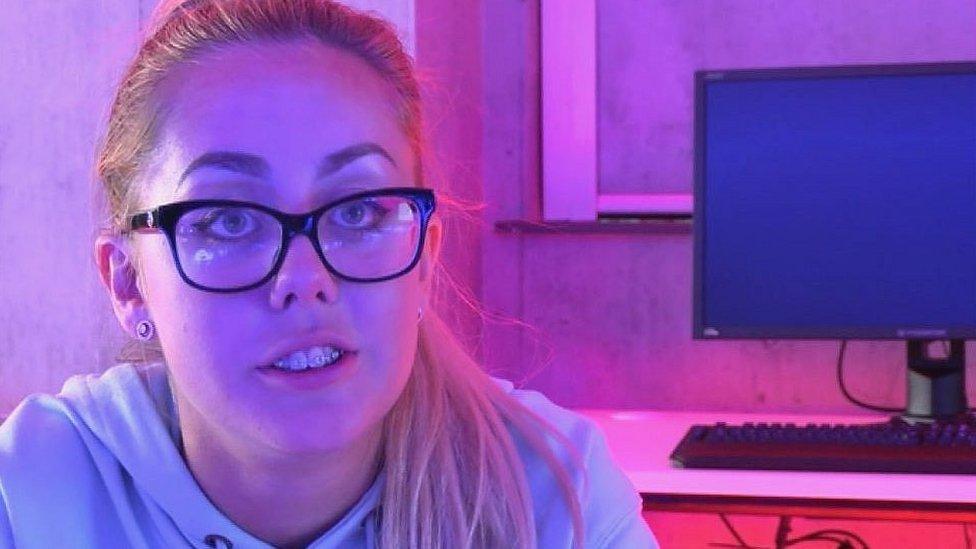The esports professional gamer muting the haters
- Published
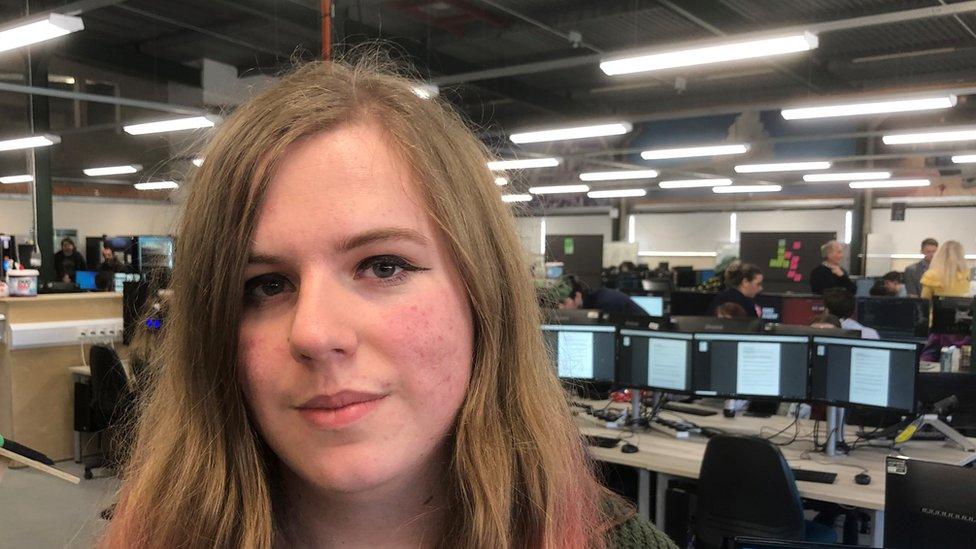
In 2021 Elise Dennis received a pro contract at the age of 19
Elise Dennis was "absolutely ecstatic" when she was offered a professional contract to competitively play a video game.
It was the pay-off for years of dedicated gaming - developing the passion she had first discovered playing games with her father.
But as a pro player of esports, the 20-year-old student has regularly faced online abuse and harassment from some male competitors.
She told the BBC how she deals with it and her hopes for a more inclusive future in online gaming.
Ms Dennis played her first game - Hogs of War on Playstation - when she was about eight years old.
'Nobody knew you'
"We'd always play it together, me, my father and my sister and it was just very funny," she said.
"My father then bought me one of the original Gameboys and that's what really got me into it."
Ms Dennis said she spent a lot of time at home as a child and increasingly spent her spare time playing online games.
"The thing I really enjoyed was the fact you could get involved with so many communities.
"There was an anonymity as well. Nobody knew who you were - they only knew you as the person you were online."
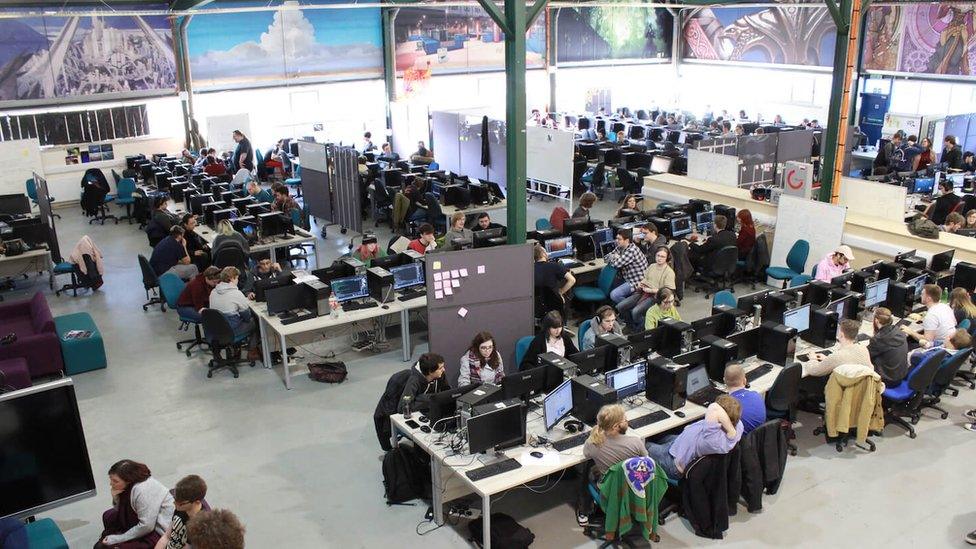
Elise Dennis is a student at Falmouth University's Games Academy
Ms Dennis is now nearing the end of her degree in game development at Falmouth University's Games Academy.
Based in a giant warehouse near the coast of Cornwall, the university had wanted to create an "American-style" games school simulating the environment of a production house where programmers, writers and animators collaborate to produce new online games.
Ms Dennis has thrived there - acting as an ambassador for the university, captaining the university's Valorant team and getting the pro contract for the same game.
But the profile of being a professional player has meant she has been subjected to abuse from some male peers.
"There's definitely been a stereotype that's been applied to female gamers and especially to female pro-gamers," the 20-year-old said.
"Typically people see female pro-gamers as a lower level compared to male peers and sometimes when I go into a game we do face quite a lot of harassment - sometimes it's a case where people refuse to play with us and they can get quite extreme in some cases."
I perform to the best of my ability and try to show them they're wrong."
Ms Dennis said the behaviour she had experienced from some male players consisted of verbal abuse or repeated fire from team mates.
"You have to learn that sometimes you've got to be bigger than the person who might be delivering hate towards you."
But Ms Dennis said standards of behaviour were "slowly improving".
"We're starting to get to a point now where we're starting to see that equality between pro players for the first time in the esports scene, so the faster we can get there the better."
Ms Dennis said her response to harassment was to hit the mute button so she cannot hear what her competitors are saying.
She said: "I perform to the best of my ability and try to show them they're wrong."
'Safe for everyone'
Ms Dennis said many female gamers had previously hidden their identity but "more and more women are coming out and presenting themselves publicly".
"They're starting to feel a lot more confident in themselves and more inspired by other female pro gamers," she added.
British Esports is the national body that promotes esports and strives to improve standards in the industry.
It is considering holding women-only tournaments as a "stepping stone" to open tournaments and said there was a strict code of conduct for its Student Champs - a national video gaming competition for schools and colleges.
Chester King, CEO, also recognised there were problems in esports and said a long-term approach was needed to bring about change.
He said change needed to take place "at the pro level and grassroots", with best practice enforced "at all levels for players and staff" and taught at a young age.
He said: "We can start to improve mindsets and behaviours within the esports industry, so games are more inclusive and welcoming for all."
Mr King said tournament organisers, online communities and game developers all needed to be involved in making the games and the environment around the games "safe for everyone to enjoy without fear of prejudice or harassment".
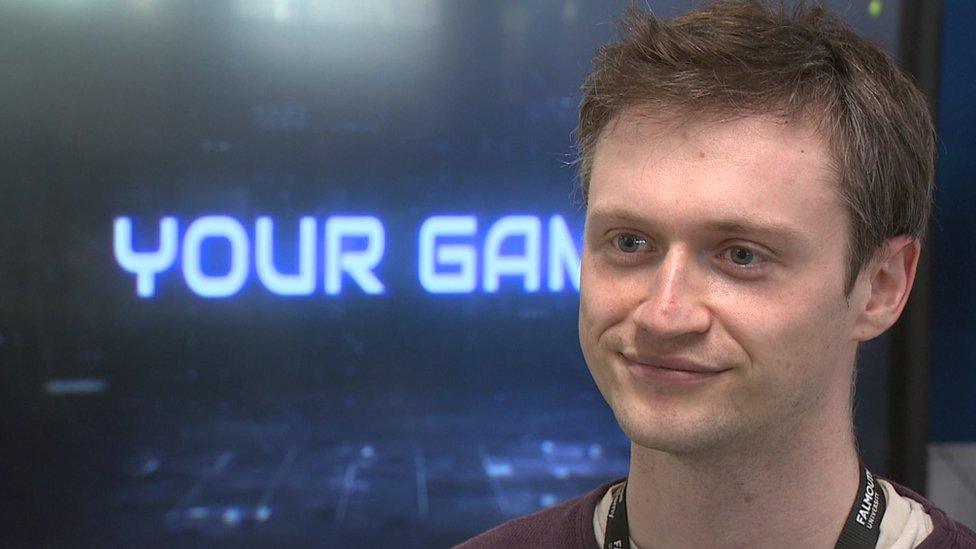
Dr Rory Summerley leads the game development course at Falmouth University
Research shared with the BBC in September 2021 showed only a tiny fraction of the millions being won in competitions around the world was going to women.
Dr Rory Summerley is leading the development of a new esports degree that will begin at Falmouth University in September.
He said: "We're seeing the rise of gender-specific esports tournaments so you might have female-only tournaments where it might be easier for that part of the community to participate without fear of any external judgement or pressures.
"But ideally you might say that esports are quite well positioned to be quite a radical departure from sports traditionally which usually does bracket people based on gender."

Follow BBC News South West on Twitter, external, Facebook, external and Instagram, external. Send your story ideas to spotlight@bbc.co.uk, external.
- Published13 January 2022
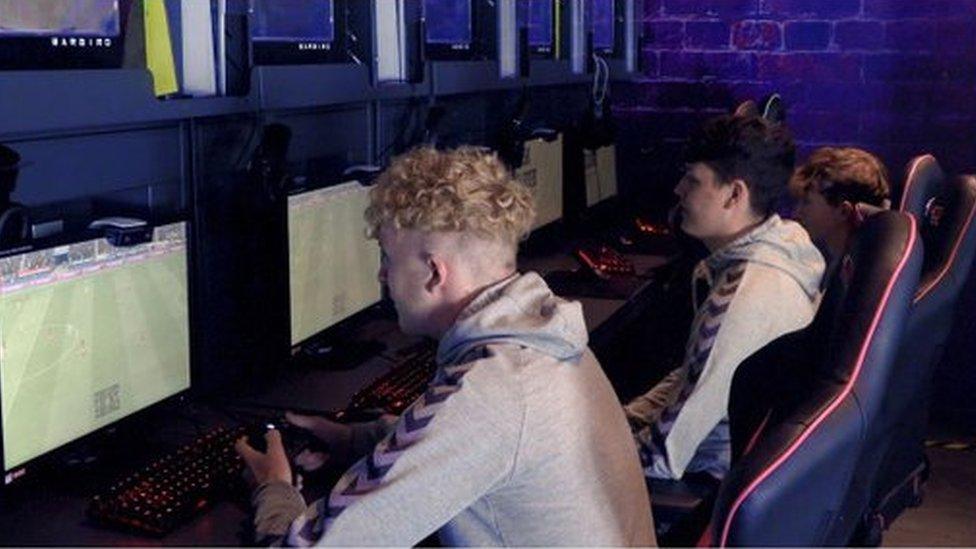
- Published7 September 2021
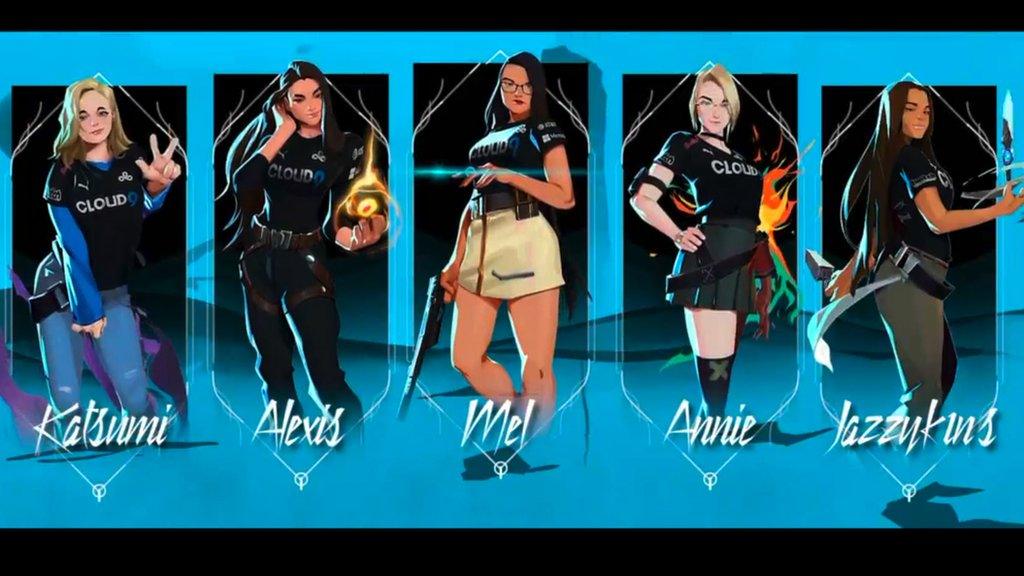
- Published24 September 2018
